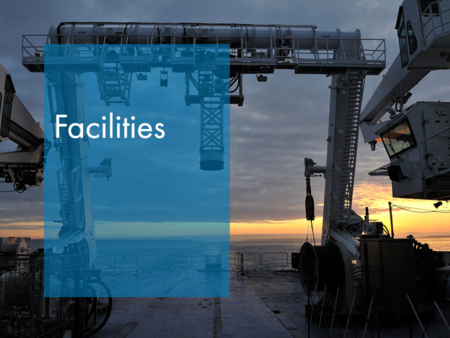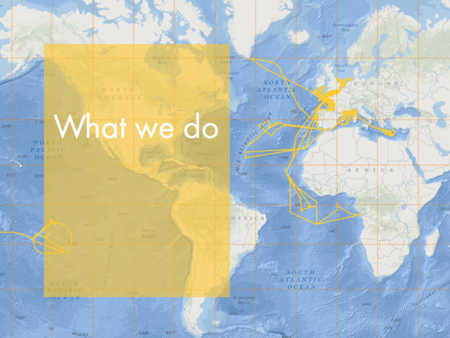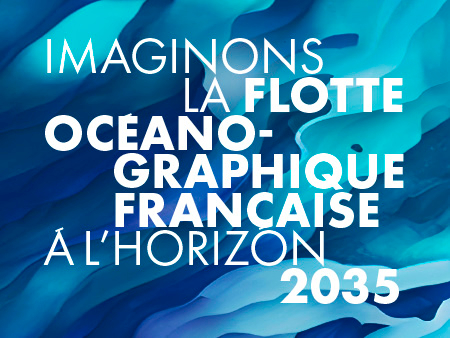2.6. Needs for human support
2.6.1. Need for dedicated staff
The lack of IT staff is blatant in most disciplines and institutes due to their own recruitment policies. Within the current context of shortages, we must organise ourselves as pragmatically as possible. We would particularly like better articulation between the laboratories and the technical services. For example, in the case of instrumentation projects or certain very technical campaigns, such as observatory maintenance campaigns, putting an AUV 6000 m online, coupled with HOV Nautile and ROV VICTOR requires specific expertise for processing micro-bathymetric and imagery data and therefore staff dedicated to these tasks in order to optimise scientific data exploitation.
Campaigns that are purely dedicated to the observatories do not generally require a significant number of staff on board, but they must be qualified, and on the whole permanent, to ensure that data acquisition is long-lasting and high quality. The classic on-board equipment is generally enough, but there might be specific demands for lifting equipment particularly to ensure maintenance of moorings or deep instrumented sites.
However, the rise in pressure on observation services (OS) will quickly suffer from the lack of CNAP posts, that coordinate, run observation services and their scientific exploitation.
Furthermore, in the light of the ever-growing flow of data linked to the deployment of new tools (such as generalisation of the FerryBox) and the multiplication of data acquisition possibilities (such as by systematically making the most of transits between campaigns), we can also highlight the importance of appropriately increasing human resources to manage, implement and supervise data collection and do the initial data processing (in a quality approach).
The data archiving/storage/availability aims also require dedicated personnel, in order to ensure that the data acquired during oceanographic campaigns is in the public area after the moratorium periods. The same goes for the storage/archiving/access to samples of rocks, cores, fluids, organisms, after the moratorium periods.
Finally, systematically adapting fishery campaigns to an ecosystemic approach, particularly to meet the needs of the MSFD, will require certain operators to rework their on-board organisation to increase flexibility of working hours, particularly at night.
2.6.2. Need to identify one person who acts as an interface with the mission chief, on land and on sea
As far as organising campaigns is concerned, the user community is unanimous in highlighting that it is essential to have a person on-board present right from the campaign preparation meetings to (1) make it easier to transmit technical, logistics information, etc. (2) ensure continuity between preparation and carrying out operations on board and (3) ensure an effective interface between the mission leader and the technical personnel on land and on board. This refers to the need for a function, not an extra person.
This type of function would be able to anticipate and alleviate many potential logistics problems (transporting materials, getting through customs, etc.), administration issues (missions, work permit applications), or technical problems (use of equipment on board).
This kind of organisation has been implemented for several years on the Marion Dufresne and is preferred by the users.
2.6.3. Need for a logistics department within the fleet
Within the equipment pools and in the user community, the skills do not currently exist to effectively manage customs issues, transport of hazardous products, etc. even in relation to private service providers or via ULISSE. The time given over to these tasks is time not dedicated to other priority basic tasks such as maintenance and preparing equipment for the campaigns.
Repositioning logistics activities within the fleet would be able to create a really specialised department. This department would ensure (funding AND execution) logistics for the operator but also for the scientific teams and equipment from the instrument pools mobilised for an assignment.
This topic also looks at the question of necessary skills as departments dedicated to logistics within the IPEV will not be included in the fleet.
2.6.4. Need for a legal cell within the fleet
Setting up multi-partner projects at sea includes many legal aspects (authorisations to work in not only foreign but also French waters, setting up Nagoya protocols, establishing multi-partner contracts fixing the rights and responsibilities of each one, etc.).
Tougher environmental rules on preserving marine environments and the resulting increase in the number of marine protected areas lead to changes and significant delays in work permit application procedures, not only in foreign waters but also in French waters.
To ensure an effective response, a dedicated cell should be set up within the FOF in order to implement and monitor dossiers; the mission leader only intervenes for questions on the type of research work to be undertaken. Failing that, many regions could become or remain practically inaccessible for French teams.
2.6.5. Need for harmonisation of access to instrument pools
For the instrument pools, at this stage, restructuring the fleet is not going to develop their role and position compared to the current organisation. Nevertheless, all the equipment from these pools is intended to be put on board the FOF vessels and is therefore involved, de facto, in the FOF reorganisation. Accordingly, to ease equipment availability for FOF users, it would be advisable to have a single common interface for all instrument pools which would make it possible to visualise all the different equipment and instruments available for the community.
In fine, it is recommended to increase pooling of technical resources, or even envisage a reconciliation of certain national pools (such as OBS seabed seismometers). For example, it has been considered to include the IPEV mobile equipment intended for core boring (cutting bench, test bench, etc.) in an instrument pool available to all FOF users. There are also discussions on expanding the “long sedimentary core sampling” missions and skills for the existing ‘ocean’ cell of the C2FN, Centre de Carottage et de Forage National (c2fn.dt.insu.cnrs.fr).
This type of reorganisation requires human resources to be strengthened to harmonise how these pools work: setting up a common interface, ensuring development, adaptation and maintenance of equipment intended for coastal and ocean-going vessels plus their implementation at sea in open-sea campaigns.
It is therefore advisable to reinforce multidisciplinary skills in departments overseeing these pools. For example, current pools lack the skills to manage chemistry equipment. If this type of equipment must be managed in the pools in the future rather than in the labs, the corresponding skills should therefore be developed.
Furthermore, this reorganisation of the pools will simplify international collaboration by making it easier for users to lend and borrow equipment.




